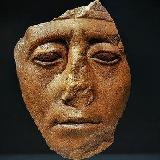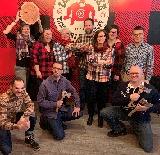Blog
Unless otherwise stated, content is shared under CC-BY-NC Licence
Embedding sustainability into systems and tools: a brief case study
Keith Pendergrass is Digital Archivist at Baker Library Special Collections, Harvard Business School.
This is a companion post to the Environmentally sustainable digital preservation - moving from theory to practice webinar.
Since the 2019 article and workshop protocol on environmentally sustainable digital preservation that I wrote with Walker Sampson, Tessa Walsh, and Laura Alagna, I have been using our framework to improve the sustainability of Baker Library’s digital archives program. I have written previously about our efforts to integrate sustainability into policies and workflows. For this post, I am going to look at a recent software development project as an example of how we can embed sustainability into our design and use of digital preservation systems and tools.
Evolving File Format Identification, Migration, and Management for Preservation through Tool Development
Tom J. Smyth (Manager, Digital Preservation) and Maxime Champagne (Digital Preservation Repository Supervisor), Library and Archives Canada
Early this year, it became a priority for LAC’s Digital Preservation unit to reconsider the context of (and affect a major update to) our policy statement on the file formats we accept for transfer of digital library and archival documentary heritage.
In the course of examining the existing documents, a few issues arose for discussion among the preservation divisional staff:
Breaking down barriers in e-only thesis submission: how digital preservation contributes to the conversation at the University of Glasgow
Leo Konstantelos is Senior Assistant Archivist (Digital) in Archives & Special Collections at the University of Glasgow
The Digital Preservation Working Group (DPWG) at the University of Glasgow is a cross-University collaboration working to implement the University’s digital policy and strategy. Established in 2015, the group oversees the delivery of digital preservation services, with representation from the University Library, IT Services and the Data Protection & Freedom of Information Office.
We’ve been busy DP bees recently, assessing Archivematica as a production-level DP platform; reviewing and elaborating on our digital archiving workflow; testing said workflow with born-digital acquisitions at the University Archives; and working on setting up an archival forensics lab. Check our #WDPD2021 posts on Twitter @UofGlasgowASC to see what we’ve been up to!
On Being a Good Ancestor
I had the happy task of opening World Digital Preservation Day about 40 hours ago: but I get the fuzzy end of the lollipop too. Today I have to encourage you back to work. Those Excel spreadsheets aren’t going to screw up the date columns on their own. Oh hang on…
The original idea for World Digital Preservation Day was very simple: to help our far-flung community connect, and to raise awareness about our work. In 2021 we added a theme – we didn’t have themes in the early years – about Breaking Down Barriers to Digital Preservation. Linguists will spot a verb in there, and it’s in the active voice too. So, at least thematically, 2021 has been the most ambitious World Digital Preservation Day yet, with action at its core. There’s a renewed urgency and confidence represented by this theme, growing partly from the many connections and case studies (not to mention cakes and crafts) which have come before.
Urgency and confidence are needed. This last year might be remembered as the year of the great deletion; as the year of obfuscation, misinformation and denial. As technology has become more and more critical to our lives so it has become the means and theatre of division, exploitation and harm. The fragility of digital media has given cover to those who would hide their actions, and misdirection to the gullible who think data loss is inevitable, perhaps even reasonable.
As Richard Ovenden has argued, it’s time to Undelete the Government. My only qualification: not just the UK and not just the government. If I can mix my metaphors, we started World Digital Preservation Day with the idea of breaking down barriers, but perhaps we need to end it by taking to the barricades.
Data loss may seem like a small issue considering the many challenges ahead but rest unassured: corruption, maladministration, disaffection, and incompetence are the inevitable consequences of an entirely avoidable digital dark age.
Enabling reconciliation in Canada: the value of digital preservation
Kelly Stewart is Chief Archivist at Artefactual Systems Inc.
There are many ways to describe the value of digital preservation, but for me it’s fundamentally about enabling memory in the modern world. Whether we want to hold those in power to account for the actions they have taken or use those records in new, previously unimagined or impossible ways as science, culture, and technology evolve, access to reliable and trustworthy digital records is a cornerstone to our collective memory.
Breaking Down Barriers: Collaboration at the University of Calgary Libraries and Cultural Resources
Eilzabeth-Anne Johnson is Electronic Records Archivist at University of Calgary Libraries and Cultural Resources.
At the University of Calgary Libraries and Cultural Resources (LCR), we're in the process of developing our digital preservation program. As part of this undertaking, we've been breaking down the barriers of the ways we communicate with each other and with our colleagues, patrons, and donors outside the institution. Acquiring, cataloguing, migrating, and sharing our digital material all comes with challenges. Learning how best to communicate with colleagues in different departments and with different areas of expertise has been crucial for our projects. While digital preservation can seem like the domain of only archives and libraries, LCR operates eight University of Calgary libraries on campus and across the city. Included in LCR are two art galleries: the Nickle Galleries and the Founders' Gallery at The Military Museums, as well as Archives and Special Collections, the University of Calgary Copyright Office, Research Data Centre and the University of Calgary Press. All these units create born-digital material.
Fixity When Nothing is “Fixed” - Reflections on Upstream Engagement and Digital Preservation
Angela Beking is Data Policy and Research Analyst/Analyste des politiques et de la recherche en les données at Privy Council Office/Bureau du Conseil privé (Canada).
We often speak of the critical importance of upstream engagement in digital preservation work. If we wait until the end of the records lifecycle to begin speaking with Producers about the opportunities provided by digital preservation, we are often too late. That box of unreadable floppy disks. Those files in a format that is not recognizable, let alone readable. That information that was stored on a social media platform, thinking it would be around forever (looking at you, Google +). All of these examples speak to the need for active and engaged digital preservation practice.
But how do we actually “do” upstream engagement? What value can we deliver to Producers, and what can we learn in return? I suggest that there are lessons to be learned in breaking down barriers through upstream engagement that will encourage – or even require – our discipline to reflect on its core assumptions.
Perishable Knowledge: Why digital preservation matters for accessibility
Christopher Zaste is a Digital Archivist at the University of Manitoba.
On September 30th of this year, Canada held its first National Day for Truth and Reconciliation. Throughout the nation, one could see people wearing orange shirts wherever they went. Old, young, Indigenous, non-Indigenous, people of all backgrounds donned this shirt to remember residential school Survivors. While the number of orange shirts are plenteous, the number of residential school Survivors are not. Each year, their number steadily decreases. While archivists preserve the written record in archives, society loses the firsthand experience of those who went to residential school. Human knowledge has a shelf life, and it is the lifespan of the person holding it.
With the loss of this knowledge, people will lose the opportunity to learn about what happened from those who experienced residential schools firsthand. The same can be said for the loss of knowledge for other marginalised groups as their truths often vanish when one of their number passes away. This is a perspective that is not present in the written record, which non-community members often wrote. With its loss, entire communities can lose their voice in history.
We need application signatures! Automating access via emulation with application signatures
Euan Cochrane is Digital Preservation Manager at Yale University Library.
As part of the EaaSI program of work we are aiming to make it as easy as possible to use emulation for long term digital access. One goal we’re trying to achieve is to enable users to automatically open digital objects in their original interaction software. We hope this will break down barriers to the use of emulation and preserved software in long term access contexts.
We currently have a prototype of the Universal Virtual Interactor (which is what we call the tool that automates the automated opening process) that uses file format information and other metadata to match digital objects to interaction software. It assumes that a file matching a specific file format signature (when scanned with a format identification tool), should be opened with the software for which that format was the default, and which was available when the file was created. Even then it reports multiple matches and attempts to order them by best fit/most likely to be “original” (based on dates, etc).
Web Archiving the 2021 Federal Election at Library & Archives Canada – A Look Behind the Curtain
Emily Monks-Leeson, Russell White and Kevin Palendat from Library & Archives Canada.
On September 20, 2021, Canada held its 44th federal election following a 36-day campaign. As Canadians turned to their preferred news and social media outlets, Library and Archives Canada's Web and Social Media Preservation Program began crawling and preserving election-related websites as events unfolded online. This was the sixth election LAC had captured through web archiving, and when it comes to the dynamic nature of such a task, we’ve found that frequency is a friend. We had a background of knowledge and experience to draw on, dating back to 2006 when we archived a modest 21 websites totaling 23 GB of data. Our efforts have intensified with each election to the point where, in 2021, we have crawled over 300 seed URLs totaling around 1.5 TB of data (and counting).

























































































































































